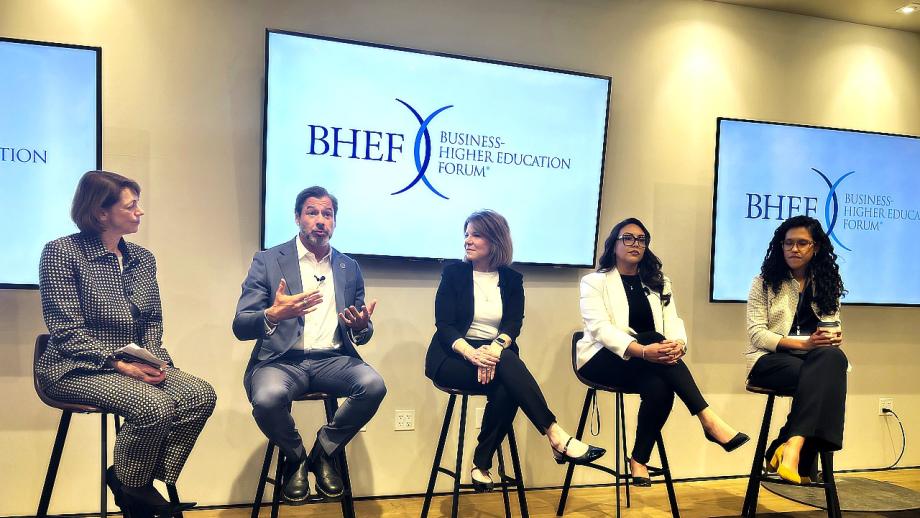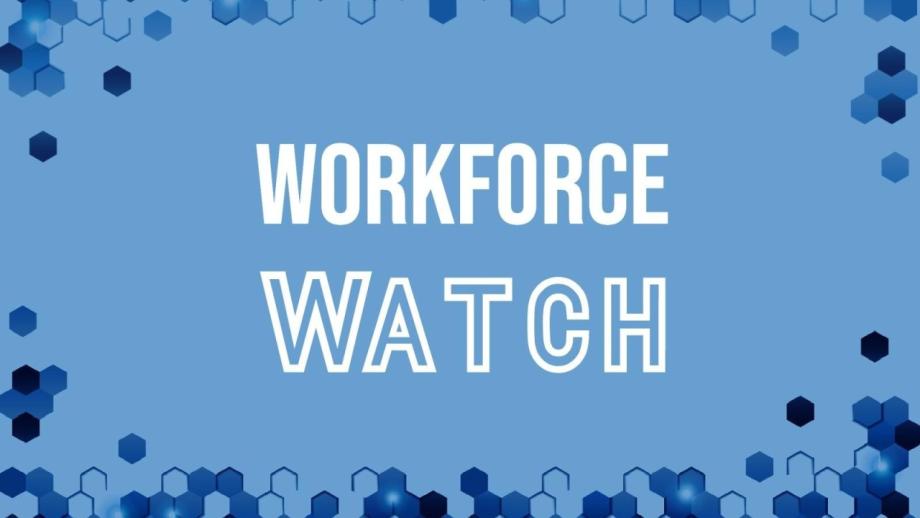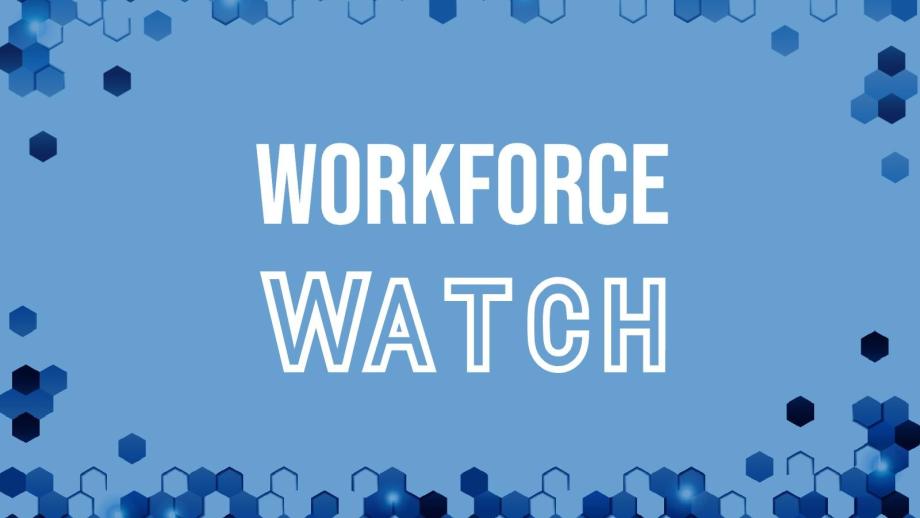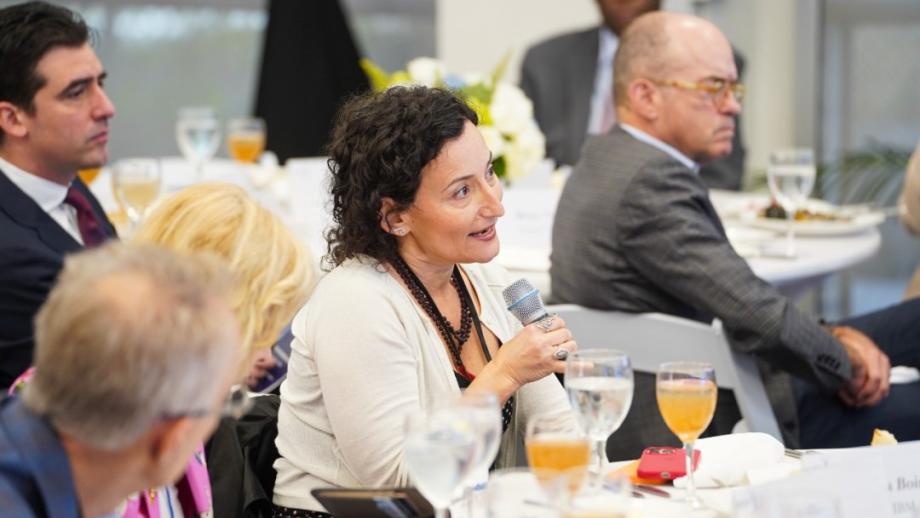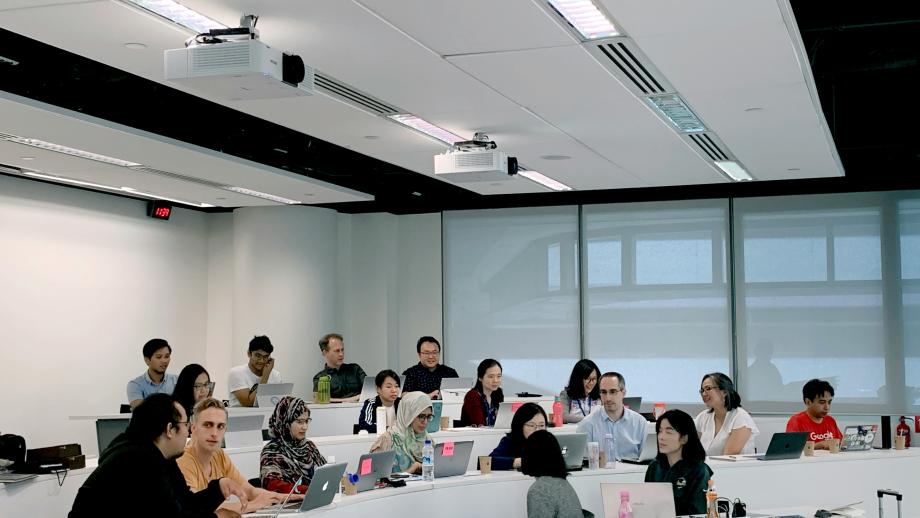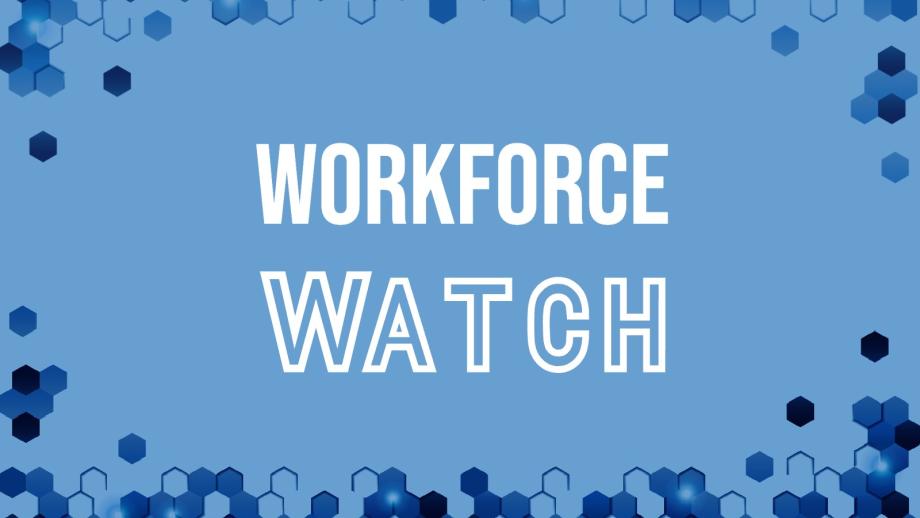A Personal Note
As we approach the end of 2024, we extend a heartfelt happy holidays and best wishes for a healthy and prosperous 2025. 2024 has been a busy year of evolution, learning, growth, and impact for the Business-Higher Education Forum. We’ve launched a refreshed strategic focus and goals with our Board of Directors, welcomed 15 new network members and 3 new board members, released new reports, playbooks and toolkits, and convened or presented to thousands of higher education and business leaders across the country to support better partnerships, innovation, and knowledge exchange.
Looking ahead, the forum stands poised to meet this critical moment of transition and disruption. As we navigate changing demographics, technology, and policies, we are driving inclusive talent innovation through strong and vibrant higher education and business connections. Our 2025 impact agenda is focused on driving substantive change around our key goals put forth by our members, including:
- Skill and Credential Alignment - Increasing the number of learners and earners with the high-value skills and credentials aligned to employer needs—with a focus on AI and the skills needed for a digitally enabled future.
- Talent-Ready Models - Expanding access and adoption of work-integrated learning models that inclusively prepare and connect talent.
- Catalyzing Regional Initiatives - Scaling and implementing partnership best practices in conjunction with regional networks and leaders.
All Americans seek a viable route to economic prosperity for themselves and their children; close partnership across business and education is essential to ensuring our diverse, scaled network of higher education is an engine of economic mobility and delivers on this vision. Our work and opportunity for impact is as urgent as ever. I thank all of our network members, collaborators, partners, and funders for your partnership and leadership in 2024 and look forward to our work together in 2025. As always, please be in touch to discuss ways we can support your work and success.
-Kristen Fox, CEO
As we reflect on a busy year in review, we look to the future we are building. We envision a future where higher education and business collaborate seamlessly to develop a skilled, adaptable workforce—one that drives innovation, fuels economic growth, and empowers individuals to thrive in meaningful careers. While we’re not there yet, the Business-Higher Education Forum is proud to support those in both sectors who are leading the way.
Today, two-thirds of business leaders report challenges in finding talent with the skills needed to thrive in a rapidly changing workplace, while more than half of college graduates are underemployed. In this era of unprecedented economic transformation, collaboration between higher education and business is no longer optional—it’s essential.
By bringing together leaders from higher education and business to roll up their sleeves and design, pilot, scale, and replicate initiatives that work, the Business-Higher Education Forum is redefining how learning and work intersect. The forum is tackling the biggest workforce challenges head-on. Over the course of 2024, our work has centered on the following impact themes:
- Research and tools that influence the national conversation and action
- Identifying the skills employers need and building talent solutions
- Empowering higher education agility
- Building and scaling regional workforce initiatives and convening for action
Research and Tools that Influence the National Conversation and Action
This year, we released two major national reports, many national playbooks, toolkits, and case studies, as well as a new blog series to provide actionable resources and solutions to help businesses and higher education institutions address these challenges across the college to career ecosystem collaboratively.
- Expanding Internships: Harnessing Employer Insights to Boost Opportunity and Enhance Learning tackles something missing in the current evidence base: the employer perspective on how to design work-based learning. With a staggering 4.6 million gap in internships available, creating more opportunities requires addressing the challenges employers face in offering internships, clarity on internship design models and quality, and implementing a range of models that enable broader participation and inclusion in work-based learning, which is critical for learners and workers to be prepared for the work of the future. This work offers actionable recommendations for higher education leaders, employers, and policy leaders to close gaps on work-integrated learning.
- The first annual State of Skills and Partnership Research Study, Forging Partnerships to Align Education and Industry for the Workforce of Tomorrow, gives insights into employers’ skills priorities, business and higher education's perceptions of partnerships, challenges and successes in building business-higher education collaborations, and best practices for creating more effective partnerships.
- Our blog series has been launched to share actionable insights, examples of high-performing partnership models and to share solutions that work. For example, our blog on Building a Skills-based Future, highlights that skills and degrees are not a binary choice and offers recommendations for both business and higher education to embed skills-based practices and skill signaling. Higher Education as the Partner of Choice to Employers for Upskilling and Reskilling – Strategies that Work offers recommendations on how higher education can deliver on employers’ and workers’ increasing upskilling and reskilling needs.
- Chicago Apprentice Network: Scaling and Replicating a Successful Apprentice Network Model highlights BHEF member Accenture along with Aon and their development of professional apprenticeship programs to expand their talent pools, which have since become an essential part of their talent recruitment strategies.
Follow BHEF on LinkedIn or subscribe to our mailing list to stay up to date on upcoming insights, research, and reports.
Identifying the Skills Employers Need and Building Talent Solutions
A core Business-Higher Education Forum capability and mission is creating transparency and enabling the rapid development of industry-aligned educational and career pathways. The forum utilizes its tested skills signaling methodology which combines labor market data, business-developed KSA frameworks, subject-matter expert validation, and then aligns competency maps to curriculum.
One of the many examples of this important work is an initiative that the forum led in partnership with the Business Roundtable’s Workforce Partnership Initiative. The forum supported the New York Jobs CEO Council and the Partnership for New York City in developing employer signaling, producing industry-aligned competency maps and career pathways in accounting, software development, data analytics, financial analyst, and business analyst, which are influencing the curricula and strategic planning of CUNY. A key component is cross-cutting durable skills needed by NYC employers and employers broadly. Key durable skills needed across roles were storytelling, problem solving and critical thinking, adaptability, life-long learning, teamwork and collaboration, presentation skills, and Microsoft Excel proficiency.
To learn about available industry validated KSA maps or how we can support your region, consortia, company or college in building these maps, contact Jennifer.Thornton@bhef.com
Empowering Higher Education Agility
Higher education is the most powerful economic development and mobility engine built at scale to deliver on our nation’s critical workforce challenges. However, to ensure that we deliver on that vision, our work supports innovative higher education leaders in building partnerships, advancing institutional transformation, and ensuring alignment with industry needs to support positive student outcomes. In 2024, we advanced our work in this area—both to our members and the field—with two new offerings to help both administrators and faculty position learners for meaningful career outcomes and economic mobility
The Faculty Innovation Fellowship
BHEF’s faculty innovation fellowship provides the tools, experts, and space for faculty to design, develop, and lead innovations that establish industry-aligned, inclusive talent pipelines and expand pathways to student success. Fellows pursue new employer partnerships and gain the leadership and change-management skills necessary to successfully implement innovative practices within and beyond their classroom. Fellows regularly meet over nine months to learn, build a strong network, and launch projects which are vetted and tested by their cohort peers, BHEF staff, and national experts. The inaugural cohort of 19 fellows represents seven disciplines ranging from business and hospitality to nursing, geosciences, and social sciences. Click here for an inside look at cohort one. BHEF received great interest for the second fellowship cohort and is currently reviewing faculty nominations.
Partnership Readiness Assessment for Higher Education Institutions
BHEF’s assessment tool for higher education systems, public and private colleges and universities, and community and technical colleges is designed to help higher education leadership teams gain insights into current industry partnership practices, build internal alignment, and move quickly toward deeper collaboration aligned to mission and goals. The assessment enables institutions to understand their capacity, where practices and policies are strong and where additional support may be needed to become the “partner of choice” for business.
Building and Scaling Regional Workforce Initiatives and Convening for Action
Our approach to business-higher education partnerships includes tailored regional engagements to design, pilot, and implement initiatives that can be scaled nationally. Regional economies have unique industries, employers, and talent needs, which are nuances only identified through convening relevant stakeholders in the region and fostering relationships to pilot and test initiatives. We support our network business and education leaders in advancing and catalyzing powerful regional initiatives that support scale. Just a few examples of this work in 2024 are below.
The Connecticut Tech Talent Accelerator has developed 15 new or updated business-validated pathways with 26 Connecticut businesses over 2 years.
BHEF and the New England Board of Higher Education (NEBHE) developed and launched the Tech Talent Accelerator in 2022 to close the tech skills gap in Connecticut. Faculty and industry partners followed BHEF’s Purposeful Partnerships framework to increase the number of pathways available for more learners to prepare for tech jobs offered by Connecticut employers. Through regular community of practice meetings, participating institutions and businesses were able to identify in-demand knowledge, skills, and abilities; discuss program models like micro-credentials; promote high-value partnership activities like work-based learning, credit for prior learning, and guest lectures from business; and explore programs and partnerships’ sustainability plans. Additionally, partners developed relationships across the cohort, allowing them to share challenges in implementation, seek advice from peers, engage in professional development, and learn best practices from across the country. Learn more about the Tech Talent Accelerator here. In September, BHEF and NEBHE celebrated the success of TTA at Quinnipiac University with TTA participants and speakers including Governor Ned Lamont.
The Texas Workforce Partnership Initiative (WPI):
Texas’s legislation, HB8, transformed the way community colleges are funded in the state from a model based on the number of courses and credit hours offered to a performance-based model tied to outcomes. Through the Business Roundtable’s Workforce Partnership Initiative, BHEF, the Texas Business Leadership Council, and Texas Association of Community Colleges came to together to develop and scale community college credentials of value, increase hiring and work-based learning opportunities, and accelerate access to competitive, diverse, ready-to-work learners with in-demand skills. Texas WPI convened business and higher education leaders in El Paso, San Antonio, Dallas, and East Texas, to live poll employers on their most pressing skills needs, encourage dialogue, and foster relationships between community colleges and businesses in the region. Texas WPI highlights include:
- EY-Alamo Colleges Hiring Pilot: EY’s first community college partnership in the country with Alamo Colleges District led to the hiring of almost 100 Alamo college graduates in the first three years. Read more here.
- The Texas WPI Summit: In March, Texas WPI brought together community colleges, businesses, state officials, and non-profits from across the state to celebrate accomplishments. Thirty-three credentials of value were developed in high demand fields such as mechatronics, certified patient care technician, and programmable logic controllers.
As we look ahead to 2025, we are building on these strong successes and focused on ensuring that American higher education and business work closely and seamlessly together to build the inclusive pathways into the workforce of the future that our nation needs.
Voices of Impact
In 2024, we were fortunate to work alongside key leaders across industry and higher education. Hear from them about the importance of our work ahead here.
Jae Lynn Akin, Human Resources Executive at State Farm, shares how BHEF has played a key role in closing the gap between the skills students acquire and what employers need, helping to prepare them for success before they enter into their careers. Her dedication to addressing skills gaps and creating inclusive, high-quality talent pathways reflects the powerful collaboration between business and higher education that BHEF champions. Hear her reflections here.
“If you become part of BHEF, you become part of the solution. Instead of being able to just talk about the problem, you’re actually working towards active solutions to bridge the gap between higher ed and business success.”
Tim Sands, President of Virginia Tech, shares his insights on how these essential partnerships are shaping the future of education and creating meaningful pathways for students, institutions, and businesses alike. His dedication to fostering partnerships between higher education and industry truly reflects the collaborative spirit that drives our work forward. Hear his reflections here.
“It (BHEF) gives you a national platform for the work that you’re doing. It also allows you to draw from best practices that are coming from all over the country. ... I’ve learned so much from my colleagues across the country, looking at how they do things and incorporating the things that work best and bringing it back to Virginia.”
Terrence Cheng, Chancellor at Connecticut State Colleges and Universities, shares how BHEF’s collaborative approach ensures that members are always available for a quick conversation or to exchange ideas when new opportunities or challenges arise. This open line of communication is key to driving the innovative partnerships that benefit students, institutions, and employers alike. His leadership in higher education reflects the shared commitment to building stronger connections between education and business. Hear his reflections here.
“Right now, higher education and academia view things in certain ways industry has very particular needs. We have to meet in the middle if we are going to be successful and BHEF helps us do that.”
